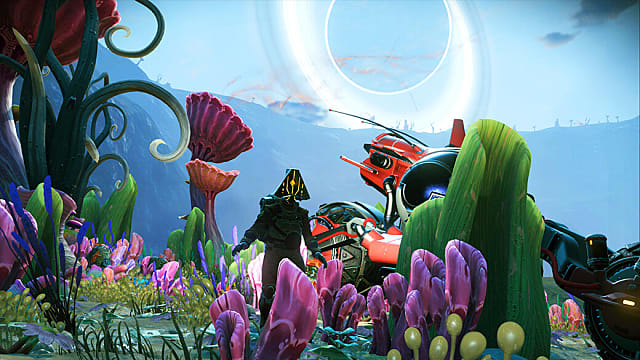Almost every star system gets a bunch of additional planets in the Origins patch. These planets have more diverse topography as well, including huge mountain ranges, volcanoes, moist swampy regions, and more.
Some of the changes affect the terrain in other ways. Volcanic planets have patches that spontaneously combust, for example. Storms might spin up, spawning tornadoes or devastating lightning.
Whatever happens, players will see the atmosphere responding more dynamically.
Cloud cover varies more often and matches the surface conditions, and the amount — and color — of cloud coverage changes over time and with each planet.
Every planet has fresh fauna with a wider range of interactions, both with the environment and each other. There are more bugs (not glitches) now, for better or worse, plus massive sandworms lurking beneath the surface.
That’s all just the start. No Man’s Sky Origins adds more lore and secrets to uncover, ancient monuments, items, merchant NPCs, and a slew of improvements to textures and various parts of the game’s interface.
That’s not to mention the items and multi-tool upgrades added, as well as the tweaks made to photo mode and the game’s economy.
All this follows the Desolation and cross-platform multiplayer updates added earlier in 2020. If that’s still not enough to satisfy the space craving, there are plenty of No Man’s Sky mods to shake things up even more.
The update is out as of today on PC, PS4, and Xbox One. Stay tuned to GameSkinny for more on NMS.
[Source: Hello Games]
